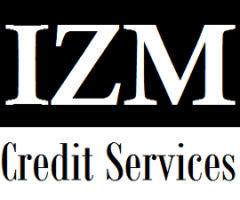An agreement between 31 Attorneys Generals and the major personal credit reporting agencies – Equifax, Experian and Trans Union will soon change credit reporting. There will be several important changes that will impact consumers who have debt in collections.
Is This The End of Double Jeopardy?
If you don’t pay a collection account, quite often it winds up with a second and third collection agency, which results in multiple negative listing concerning the same debt. This is referred to as “double jeopardy,” it affects your credit scores in a major way.
[youtube https://www.youtube.com/watch?v=CmcvL3tMrSY&w=560&h=315]
When collection agencies transfer, sell, or no longer manage accounts they will be required to update or delete the account. The agreement with 31 States Attorneys Generals requires the Credit Reporting Agencies to update their training materials and to make sure they know and institute this requirement.
Sometimes consumers find collection accounts on their reports but aren’t sure what they are for.
Collectors are required to report the name of the original creditor, but unfortunately not all do.
The changes to be made: Collection agencies are already required to provide the name of the original creditor and a “classification code” that indicates the type of debt (for example, credit card or medical). Under the agreement, the CRAs will make this information mandatory and can reject accounts that don’t meet the agreed to standards.
You still won’t see the names of medical providers because doing so compromise your right to medical privacy;( A violation of HIPPA Laws.. if your credit report showed the name of a substance abuse clinic, psychiatric center or a cancer center. “Privacy is the issue here,” says Norm Magnuson vice president of public affairs for the Consumer Data Industry Association. “The collection account must be codified so that others who receive the credit report can’t identify the medical facility. You can get the medical facility’s name from the collection agency or the credit bureau if you don’t know who the debt is from or if you want to validate the debt.
People regularly complain about a debt they have paid off, or are making payments on, but their credit reports don’t include those payments. It’s not unusual for collectors to fail to update accounts when payments are being made.
Under the settlement, credit reporting agencies must require collection agencies that report data to “regularly reconcile” information about accounts that haven’t been paid in full. If they don’t? This agreement says, “This regular reconciliation will be accomplished, in part, by periodic removal or suppression of all collection accounts that have not been updated by the Collection Furnisher within the last six months.”
So, if a consumer has been making payments but the collection agency fails to update the account for at least six months, the account will either have to be removed or “suppressed,” meaning the debt wont be shown to companies that order the report, and that the debt won’t be used to when calculating your credit scores.
Unlike other types of credit accounts, making regular payments collection accounts typically wont help your credit scores. Using most credit scoring models, a collection accounts are considered negative, regardless of the size of the balance or if payments are being made. There are some credit scoring models that ignore collection accounts if the balance is zero such as Vantage Score 3 and FICO 9, so make sure the information in your credit reports is reported accurately.
The best way to know if information is being reported correctly is to get a free credit report from Credit Karma, it is updated each month or by signing up for a credit monitoring service like the one at MyFico.com and to seek expert advice regarding your situation.
The new agreement also prohibits collection agencies from “reporting debt that did not arise from any contract or agreement to pay (including, but not limited to, certain fines, tickets, and other assessments)” so if if you have any tickets or fines they will not be placed on your credit reports any longer
This prohibition is retroactive which means the CRAs have to find a way to identify previously reported accounts of these types and remove them.
These new changes won’t happen overnight. Magnuson said “these initiatives must be implemented within 6 – 36 months from the effective date of May 20, 2015”. Until then you still have the right under the federal Fair Credit Reporting Act to dispute information in your credit files that you believe is incorrect or incomplete.
This will not change and you should still review your credit files regularly or sign up for a credit monitoring service. You can also get your free yearly credit reports from AnnualCreditReport.com
If you need professional help, give us a call, (702) 758-3799
